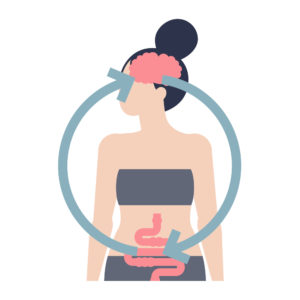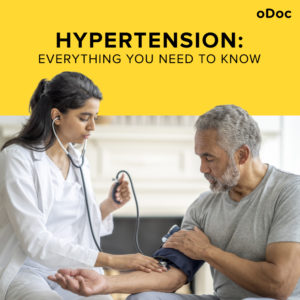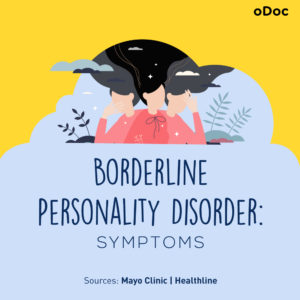Irritable Bowel Syndrome (IBS)

You’re going about your day as usual but all of a sudden you get abdominal cramping! You brush it off as nothing too serious and chalk it up to maybe being constipated. But you swear you’ve been eating enough veggies and hitting that fiber intake. And then you remember, “Wasn’t I just having diarrhea a few days ago” ? Maybe it’s that delicious koththu takeout you had that’s giving you stomach discomfort. But you’ve been experiencing these symptoms in and out for quite a few months now. What if I said all these symptoms of stomach discomfort and irregular bowel movements point to a larger underlying illness at hand?
What Is IBS?
IBS, short for irritable bowel syndrome, is rather a common disorder that targets the large intestine which affects 10-15% of the global population. Common signs and symptoms include stomach cramps, bloating, gas, nausea, abdominal pain and diarrhea or constipation, or both. These tend to come and go over time, and can last for days, weeks or months at a time. Unfortunately, IBS is a chronic condition, so you need to manage it long term. It can be frustrating to live with and may impact your day-to-day life but there are IBS treatments that can alleviate and control your symptoms!

You must be wondering how exactly one gets IBS, however, the exact cause is unknown – it has been linked to food passing through your gut too quickly or too slowly, oversensitive nerves in your gut, stress and a family history of IBS. IBS triggers don’t follow any hard and fast rules. Different people have different triggers, such as certain foods, poor mental health, poor sleep, infections, hormonal changes and changes in gut bacteria.
IBS is a functional disorder which means tests would prove inconclusive as there aren’t structural changes in the large intestine or bowel tissue to identify. This means that it can only be diagnosed by your doctor, who is conveniently only three taps away from being consulted on oDoc!
But try not to stress too much about it because stress can worsen or trigger symptoms because of the brain-gut connection, which we covered in our previous blog. Only a small number of IBS sufferers have severe symptoms and pain.
How IBS Affects The Body

- Abdominal cramping. Lower abdominal pain which tends to decrease after a bowel movement. Whilst there are certain medications that ease the pain, you can also try modifying your diet to include less FODMAPs. FODMAPs are small carbs that many people with IBS cannot digest well which may cause hydrogen gas build up leading to bloating and cramps. If you find yourself being sensitive to FODMAP rich foods like legumes, dairy products and high fructose foods (including honey and processed foods with high fructose corn syrup), try cutting them down and see if your symptoms alleviate. Since your sensitivity to FODMAPs may differ to others it’s always best to speak to a gastroenterologist to seek the best course of action.
2. Changes in bowel movements. Around 1/3 of patients experience diarrhea but others experience constipation-predominant IBS.. However, unlike diarrhea, if you have constipation the abdominal pain usually eases after the bowel movement and often leaves you with a sensation of an incomplete bowel movement. Having both alternating diarrhea and constipation is one type of IBS that affects about 20% of IBS sufferers.
3. Gas and Bloating. One of the more frustrating symptoms is bloating. If you have IBS your gut has an altered digestion process, which results in more gas being produced leaving your stomach in an uncomfortable state of fullness and tightness.

Stress Influences IBS
The gut is often referred to as the ‘second brain’ so it’s not surprising that IBS is a stress-sensitive disorder. Clinical studies show that the amount of stress you are under is an important factor for the development of IBS symptoms. Your anxiety and stress induces several hormonal changes which affect your gut and cause that diarrhea and stomach churning that you sadly know all too well!
Try to identify the stressors in your life and develop healthy habits to cope with it like mentioned below! You can also check out our blog on how to reduce anxiety as well!
- Deep breathing exercises such as in meditation or yoga send messages to your brain to calm down and relax.
- You can also seek mental health services to learn better coping mechanisms and other cognitive-behavioral techniques to identify and combat your stress. Whilst mental health may be a stigmatized topic in Sri Lanka, oDoc offers you a private, quick and easy way to consult qualified mental health professionals from the comfort of your own home who are simply three taps away!
3. You need to make sure you get adequate sleep. At least seven to eight hours per night. Getting plenty of sleep will reassure your body it’s not in a state of distress!
4. Exercise the stress away! Exercise releases feel-good chemicals in the brain called endorphins. These are natural painkillers which elevate your mood. This probably explains why going to the gym even on days you don’t feel like dragging yourself there, is bound to lift your spirits!
When To See A Doctor
Since symptoms differ from person to person it’s important to consult either your GP or a gastroenterologist so they can provide you with a proper diagnosis and rule out other diseases. However, if you notice a change in the pattern of your symptoms or new symptoms (such as changes in bowel movement or a different type of pain that significantly interferes with your daily activities) consult with your doctor straight away on oDoc.
Download oDoc today on the App Store or Play store.
References
- What Is IBS?, NHS (2021)
- 9 Signs And Symptoms Of IBS, Healthline (2019)
- Impact Of Psychological Stress On Irritable Bowel Syndrome, NCBI (2014)
- How Stress and Anxiety Can Aggravate IBS Symptoms, Healthline (2017)
Similar Articles...

How to Keep Work Stress from Taking Over Your Life
How to Keep Work Stress from Taking Over Your Life In today’s fast-paced and competitive world, work stress has become an all-too-common problem that affects

Hypertension: Everything You Need to Know
Hypertension: Everything You Need to Know Hypertension, commonly known as high blood pressure, is a chronic medical condition that affects a significant portion of the

Understanding Borderline Personality Disorder: Symptoms, Causes, and Treatment Options
Understanding Borderline Personality Disorder: Symptoms, Causes, and Treatment. Borderline Personality Disorder (BPD) is a mental health disorder characterised by instability in mood, behaviour, and relationships.
